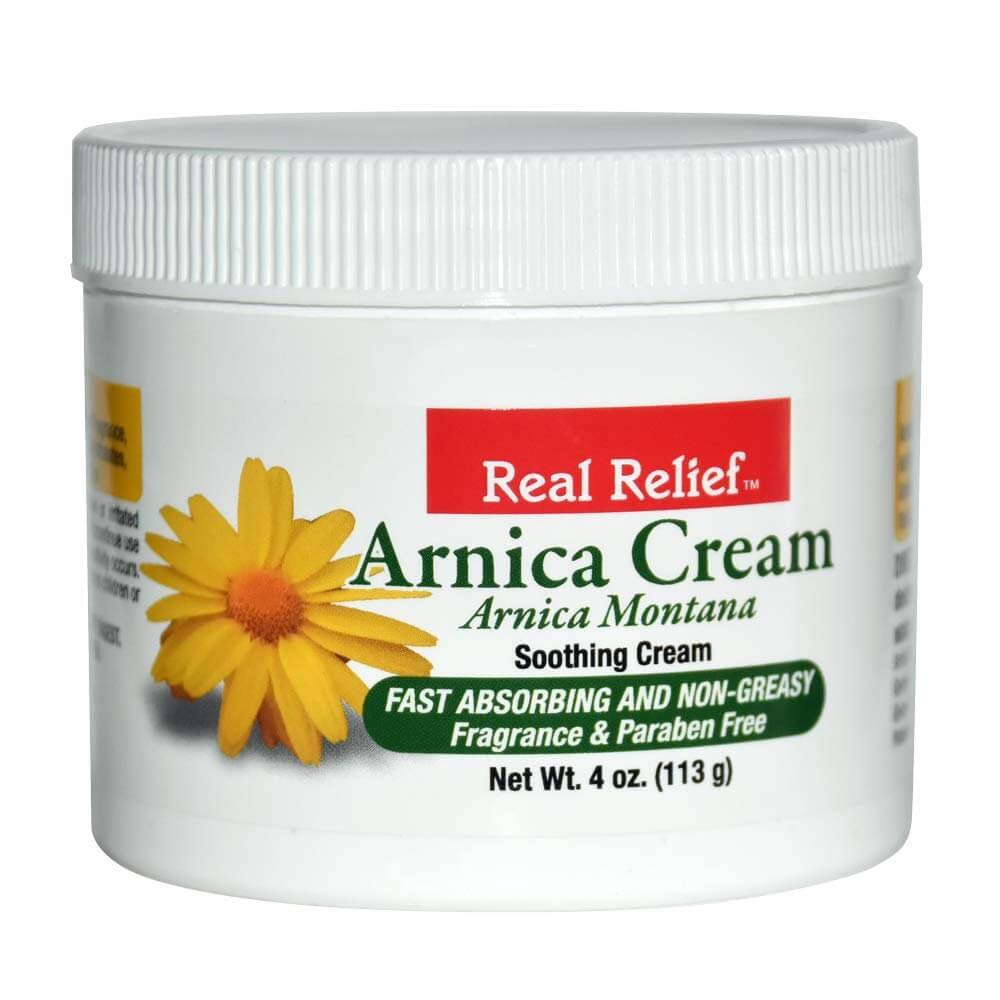Tickly coughs are irritating and bothersome, producing throat inflammation. Coughing due to a cold, allergies, or dry air might leave you seeking fast relief. There are various proven ways to swiftly and successfully relieve a tickly cough, giving you the relief you need.
This post will provide a variety of easy but effective home treatments and over-the-counter medications to stop a tickly cough immediately. We’ll discuss the best ways to soothe your throat and stop coughing, from throat lozenges to steam inhalation.
Understanding the tickly cough reasons is crucial before treating it. Identifying the cause helps adapt the strategy for fast and successful outcomes. Let’s find some helpful strategies to eliminate that tickly cough and restore your serenity and relaxation.
Causes of a Tickly Cough
Tickly coughs may have many different origins but usually entail some kind of respiratory tract irritation or inflammation. The most frequent explanations are:
- Viral infections: A tickly cough may be the result of irritation in the throat and airways brought on by a viral illness like the common cold or the flu.
- Allergies: Itchy throat and coughing might be the result of an allergic response to anything like dust, pollen, pet dander, mold, or another allergen.
- Post-nasal drip: Mucus from the nose and sinuses may irritate the back of the throat and bring on a cough as it drains there.
- Irritants: A tickling cough may be caused by irritation of the respiratory system from things like smoking, pollution, strong scents, or chemical fumes.
- Dry air: Dry air, particularly dry air inside during the winter, may irritate the throat and cause a cough.
- Gastroesophageal reflux disease (GERD): Backflow of stomach acid into the esophagus may irritate the throat and lead to coughing in certain people.
- Medications: Dry cough is a common adverse effect of several drugs, including angiotensin-converting enzyme (ACE) inhibitors used to treat hypertension.
- Environmental factors: Weather and climate fluctuations may also aggravate an already sensitive throat and bring on a tickly cough.
Home Remedies for Instant Relief
Sore Throat
- Gargle with warm salt water to soothe the throat.
- Drink warm herbal teas with honey and lemon.
- Use throat lozenges or sprays that contain numbing agents.
Congestion and Stuffy Nose
- Inhale steam by leaning over a bowl of hot water (add a few drops of eucalyptus or peppermint oil for added relief).
- Use a saline nasal spray or rinse to help clear the nasal passages.
- Elevate your head while sleeping to reduce congestion.
Cough
- Drink warm water with honey and lemon to soothe the throat.
- Try steam inhalation as mentioned above for congestion.
- Use over-the-counter cough syrups or lozenges with natural ingredients like honey or menthol.
Headache
- Apply a cold or warm compress to your forehead or the back of your neck, depending on what feels more soothing.
- Practice relaxation techniques, such as deep breathing or meditation, to ease tension.
Nausea
- Sip on ginger tea or chew on a piece of fresh ginger to help settle the stomach.
- Avoid heavy, greasy foods and opt for plain crackers or toast.
- Stay hydrated with small sips of water.
Muscle Aches and Pains
- Apply a warm compress or heating pad to the affected area.
- Take a warm bath with Epsom salts to relax your muscles.
Indigestion or heartburn
- Drink a glass of warm water with a teaspoon of baking soda to help neutralize stomach acid.
- Avoid lying down immediately after eating.
Minor burns and cuts
- For minor burns, run cold water over the affected area for several minutes.
- Clean cuts with soap and water, then apply an over-the-counter antibiotic ointment and cover with a sterile bandage.
Insomnia or trouble sleeping
- Create a relaxing bedtime routine, such as reading a book or taking a warm bath.
- Avoid caffeine and heavy meals close to bedtime.
- Ensure your sleeping environment is comfortable and conducive to rest.
Steam Inhalation
A tickly cough and other respiratory problems might be relieved with the easy and effective home cure of steam inhalation.

- Moisten the airways: A tickling cough may be made worse by the irritant effects of dry air on the respiratory system. Because steam humidifies the air, it soothes and calms the respiratory system.
- Loosen mucus: Congestion may be alleviated and mucus can be expelled more easily by using steam to open up the airways.
- Soothe the throat: The tickling feeling in your throat may temporarily subside as the warm, wet air soothes the irritation.
- Reduce inflammation: Reducing inflammation in the respiratory system by steam inhalation may help alleviate cough symptoms.
A step-by-step guide to steam inhalation
- Steam inhalation is a straightforward process and can be done safely at home. Here’s a step-by-step guide:
Materials Needed:
- A large bowl or basin
- Boiling water
- Towel or a small blanket
Instructions
- To start, bring some water to a boil in a kettle or on the stove. When the water boils, take it off the stove immediately.
- Put the boiling water in a big bowl or basin. If you don’t want any spills, the bowl has to be set on a firm, level surface.
- Get settled on a chair in front of a table or other stable surface. Have a hand towel or throw a blanket handy.
- Lean over the bowl carefully, keeping your face far away from the steam to prevent burns. Keep your distance from the water, ideally 8-12 inches.
- Create a “steam tent” by hanging the towel or blanket over your head and covering the bowl with it. This will aid in containing the steam, allowing for more efficient inhalation.
- If the steam bothers your eyes, close them and breathe deeply through your nose. Take 5-10 deep breaths of the soothing, humid air.
- If you start to feel uneasy or overheated, throw back the towel to allow in some fresh air, or step away from the activity for a little.
- After use, make sure the bowl is cleaned and the hot water is disposed of properly.
- Carefulness is required around steam and boiling water. Avoid being burned at any point in the procedure.
- Steam inhalation may be repeated up to three times daily, or as required, to alleviate a tickly cough or congestion.
Gargling with Salt Water

Soothing a sore throat or other oral or throat irritations with a saltwater gargle is a simple and time-tested home treatment. The success of the saltwater solution may be attributed to a number of factors:
- Osmosis: Compared to the cells in the tissues of the throat, the water has a larger concentration of solutes due to the presence of salt. The osmotic action aids in decongesting the inflamed tissues by removing excess fluid and mucus.
- Antibacterial effect: The antibacterial effects of salt are quite modest. Gargling with a saltwater solution helps kill dangerous germs in the mouth and throat, which may speed up the healing process.
- Moisturizing effect: Salt water can help keep the throat and mouth moist, which can be soothing for dry, irritated tissues.
- Loosens mucus: Mucus and phlegm may be loosened and cleared more easily from the throat by gargling with salt water.
Throat Lozenges and Cough Drops
Common OTC drugs for soothing a sore throat, cough, or other mild mouth/throat discomfort include throat lozenges and cough drops. They may be purchased over the counter and come in a wide range of forms, tastes, and textures. These medications are intended to dissolve gradually in the mouth, enabling the active components to coat the irritating tissues in the throat and provide relief.
The main active ingredients in throat lozenges and cough drops often include:
- Menthol: It provides a cooling sensation and helps to temporarily relieve throat irritation and coughing.
- Benzocaine or Lidocaine: These are local anesthetics that can numb the throat and provide temporary pain relief.
- Pectin or glycerin: These ingredients help to coat and soothe the throat, reducing irritation and dryness.
- Herbal extracts (e.g., eucalyptus, honey, lemon): Some lozenges contain natural ingredients known for their soothing properties.
Use a Humidifier

In situations where dry air or inflammation in the respiratory system are contributing factors to the cough, using a humidifier might be helpful in alleviating cough symptoms. Some of the most important benefits of utilizing a humidifier are as follows:
- Moisturizes the air: By dispersing water vapor into the air, humidifiers raise the relative humidity. By keeping the airways and throat from drying up, this extra moisture helps soothe an itchy or dry cough.
- Loosens mucus: Having enough humidity in the air may help thin out sticky mucus in the lungs. In the event of a productive cough, this may aid in the removal of mucus by coughing or clearing the throat.
- Soothes throat and airways: The inflamed tissues in the throat and airways may be comforted by breathing in a humid environment, reducing coughing and other unpleasant symptoms.
- Reduces coughing frequency: A humidifier may make the air more pleasant and conducive to sleep, which in turn can lessen the number of times you cough.
- Supports respiratory health: Keeping the humidity levels in your house at a healthy level will help you breathe easier and protect your family from illness.
Over-the-Counter Medications for Immediate Relief
Many common problems have quick fixes available in the form of OTC drugs. However, it’s crucial to utilize these drugs properly and just for short-term comfort as directed. Consult a medical expert before using over-the-counter (OTC) drugs if your symptoms persist or worsen, or if you have any preexisting health issues or are on any other medications. Here are several over-the-counter options for treating certain symptoms right away:
- Pain and Fever:
- Acetaminophen: Helps to reduce pain and lower fever. It is generally considered safe for most people when used as directed.
- Ibuprofen: A nonsteroidal anti-inflammatory drug (NSAID) that can help relieve pain, reduce inflammation, and lower fever.
- Cough:
- Cough Suppressants: Contain ingredients like dextromethorphan that help suppress the urge to cough.
- Expectorants: Contain ingredients like guaifenesin, which help thin and loosen mucus, making it easier to cough up.
- Combination Products: Some cough medications combine both suppressants and expectorants.
- Sore Throat:
- Throat Lozenges and Cough Drops: Contain ingredients like menthol or benzocaine that can temporarily soothe the throat and provide relief.
- Throat Sprays: These sprays can also provide temporary relief for a sore throat.
- Nasal Congestion:
- Nasal Decongestant Sprays: Contain ingredients like oxymetazoline or phenylephrine that can help relieve nasal congestion quickly. However, these sprays should not be used for more than a few days, as prolonged use can lead to rebound congestion.
- Oral Decongestants: Tablets or capsules with pseudoephedrine or phenylephrine can also help relieve nasal congestion but may cause systemic side effects like increased heart rate and blood pressure.
- Allergies:
- Antihistamines: These medications can help relieve allergy symptoms such as sneezing, runny nose, and itchy eyes. Some antihistamines can cause drowsiness, so consider non-drowsy options if you need to stay alert.
Cough Suppressants
Cough suppressants are over-the-counter drugs that reduce or prevent the cough reflex to ease coughing. They help temporarily ease uncomfortable dry coughs and coughs that don’t produce mucus yet are nevertheless annoying to have.
Common cough suppressants come in a variety of formats, including pills, lozenges, and syrups. Cough suppressants have active substances that function by blocking the brain’s cough reflex center.
Common active ingredients found in cough suppressants include:
- Dextromethorphan (DM): This is the most widely used and effective cough suppressant. It helps to suppress the cough reflex in the brain.
- Codeine: A mild narcotic cough suppressant that is sometimes available by prescription in combination with other medications.
- Phenylephrine or Pseudoephedrine: Some cough suppressants may also contain decongestants like phenylephrine or pseudoephedrine to help relieve nasal congestion.
When to Seek Medical Attention
If you have a cough that won’t go away, is very acute, or is accompanied by other worrying symptoms, you should see a doctor.
- Abuelgasim, H., et al. (2021). Effectiveness of honey for symptomatic relief in upper respiratory tract infections: A systematic review and meta-analysis. [Abstract].
https://ebm.bmj.com/content/26/2/57 - Bennett, E., et al. (2021). Is honey better than dextromethorphan at decreasing acute cough in children?
https://journals.lww.com/ebp/Citation/2021/03000/Is_honey_better_than_dextromethorphan_at.34.aspx - Bonaterra, G. A., et al. (2020). Anti-inflammatory and anti-oxidative effects of phytohustil® and root extract of Althaea officinalis L. on macrophages in vitro.
https://www.ncbi.nlm.nih.gov/pmc/articles/PMC7090173/ - Büechi, S., et al. (2005). Open trial to assess aspects of safety and efficacy of a combined herbal cough syrup with ivy and thyme. [Abstract].
https://www.karger.com/Article/Abstract/88934 - Cazzola, M., et al. (2015). Influence of N-acetylcysteine on chronic bronchitis or COPD exacerbations: A meta-analysis [Abstract].
https://www.ncbi.nlm.nih.gov/pubmed/26324807 - Diet and gastroesophageal: Reflux disease (GERD). (n.d.).
https://www.asge.org/docs/default-source/about-asge/newsroom/doc-gerd_infographic_final.pdf - FDA 101: Dietary supplements. (2022).
https://www.fda.gov/consumers/consumer-updates/fda-101-dietary-supplements - How much sleep do I need? (2017).
https://www.cdc.gov/sleep/about_sleep/how_much_sleep.html - Joo, Y.-E. (2014). Natural product-derived drugs for the treatment of inflammatory bowel diseases.
https://www.ncbi.nlm.nih.gov/pmc/articles/PMC4204705/ - Kang, E.-J., et al. (2013). The effect of probiotics on prevention of common cold: A meta-analysis of randomized controlled trial studies.
https://www.ncbi.nlm.nih.gov/pmc/articles/PMC3560336/ - Kardos, P., et al. (2021). Effectiveness and tolerability of the thyme/ivy herbal fluid extract BNO 1200 for the treatment of acute cough: An observational pharmacy-based study.
https://www.tandfonline.com/doi/full/10.1080/03007995.2021.1960493 - Learn about cough. (2022).
https://www.lung.org/lung-health-diseases/warning-signs-of-lung-disease/cough/learn-about-cough - Sanu, A., et al. (2008). The effects of a hot drink on nasal airflow and symptoms of common cold and flu. [Abstract].
https://www.ncbi.nlm.nih.gov/pubmed/19145994 - Shergis, J. L., et al. (2015). Natural products for chronic cough: Text mining the East Asian historical literature for future therapeutics.
https://journals.sagepub.com/doi/pdf/10.1177/1479972315583043 - Singh, M., et al. (2017). Heated, humidified air for the common cold.
https://www.ncbi.nlm.nih.gov/pmc/articles/PMC6483632/ - Steam inhalation. (n.d.).
https://www.nhsfife.org/media/35666/steam-inhalation-leaflet.pdf - Tiong, V., et al. (2021). The effectiveness of various gargle formulations and salt water against SARS-CoV-2.
https://www.nature.com/articles/s41598-021-99866-w - Varayil, J. E., et al. (2014). Over-the-counter enzyme supplements: What a clinician needs to know [Abstract].
https://www.ncbi.nlm.nih.gov/pubmed/25103998 - Verma, N., et al. (2017). Role of bromelain as herbal anti-inflammatory compound using in vitro and in vivo model of colitis.
http://autoimmunediseases.imedpub.com/role-of-bromelain-as-herbal-antiinflammatory-compound-using-in-vitro-and-in-vivo-model-of-colitis.php?aid=21395 - Wagner, L., et al. (2015). Herbal medicine for cough: A systematic review and meta-analysis.
https://www.karger.com/article/fulltext/442111 - Wang, Y., et al. (2016). Probiotics for prevention and treatment of respiratory tract infections in children.
https://www.ncbi.nlm.nih.gov/pmc/articles/PMC4979858/ - Ashkin E, et al. (2013). A spoonful of honey helps a coughing child sleep.
ncbi.nlm.nih.gov/pmc/articles/PMC3601686/ - Coughs and colds: Medicines or home remedies? (2018).
healthychildren.org/English/health-issues/conditions/chest-lungs/Pages/Coughs-and-Colds-Medicines-or-Home-Remedies.aspx - Fink C, et al. (2018). [Marshmallow root extract for the treatment of irritative cough: Two surveys on users’ view on effectiveness and tolerability].
ncbi.nlm.nih.gov/pubmed/30064132 - Mahashur A. (2015). Chronic dry cough: Diagnostic and management approaches.
ncbi.nlm.nih.gov/pmc/articles/PMC4298918/ - Mashhadi NS, et al. (2013). Anti-oxidative and anti-inflammatory effects of ginger in health and physical activity: Review of current evidence.
ncbi.nlm.nih.gov/pmc/articles/PMC3665023/ - Mayo Clinic Staff. (2019). Chronic cough.
mayoclinic.org/diseases-conditions/chronic-cough/diagnosis-treatment/drc-20351580 - Morice AH, et al. (2015). Treating acute cough: Wet versus dry — have we got the paradigm wrong?
ncbi.nlm.nih.gov/pmc/articles/PMC5005123/ - Mulholland S, et al. (2009). Honey and lozenges for children with non-specific cough.
ncbi.nlm.nih.gov/pubmed/19370690 - Oduwole O, et al. (2018). Honey for acute cough in children.
ncbi.nlm.nih.gov/pubmed/29633783 - Padma L. (2013). Current drugs for the treatment of dry cough.
ncbi.nlm.nih.gov/pubmed/24490443 - Paul IM, et al. (2007). Effect of honey, dextromethorphan, and no treatment on nocturnal cough and sleep quality for coughing children and their parents.
ncbi.nlm.nih.gov/pubmed/18056558 - Prasad S, et al. (2011). Chapter 13: Turmeric, the golden spice.
ncbi.nlm.nih.gov/books/NBK92752/ - Prasad S, et al. (2015). Ginger and its constituents: Role in prevention and treatment of gastrointestinal cancer.
ncbi.nlm.nih.gov/pmc/articles/PMC4369959/ - Rakover Y, et al. (2008). [The treatment of respiratory ailments with essential oils of some aromatic medicinal plants].
ncbi.nlm.nih.gov/pubmed/19039907 - Rao PV, et al. (2014). Cinnamon: A multifaceted medicinal plant.
ncbi.nlm.nih.gov/pmc/articles/PMC4003790/ - Singh O, et al. (2011). Chamomile (Matricaria chamomilla L.): An overview.
ncbi.nlm.nih.gov/pmc/articles/PMC3210003/ - Steckelberg JM. (2018). Honey: An effective cough remedy?
mayoclinic.org/diseases-conditions/common-cold/expert-answers/honey/faq-20058031 - Ternesten-Hasseus E, et al. (2015). Cough reduction using capsaicin.
ncbi.nlm.nih.gov/pubmed/25468411












